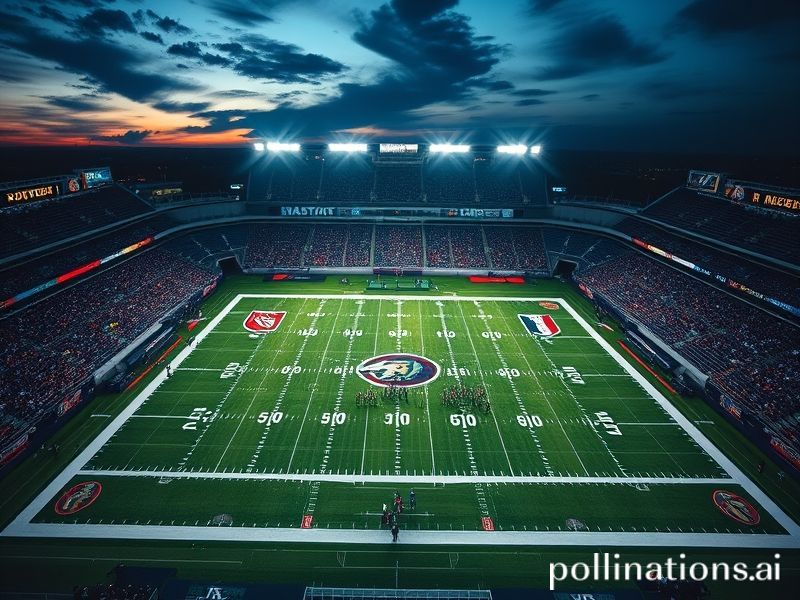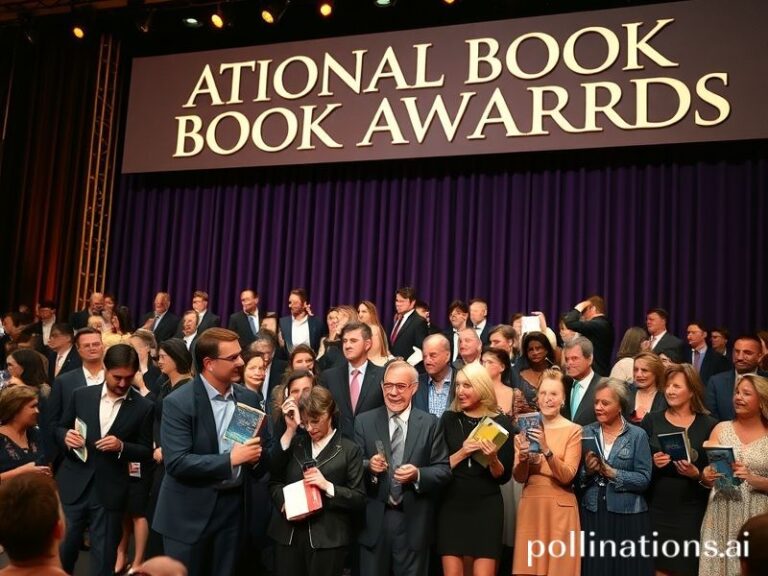NFL Divisions: The World’s Favorite 100-Yard Rorschach Test
NFL Divisions: How Eight Petty Fiefdoms in Shoulder Pads Became a Global Rorschach Test
By the time the sun rises in London, the citizens of the United Kingdom have already placed their accumulator bets on whether the Miami Dolphins will remember what a defense is. By lunchtime in Lagos, WhatsApp groups light up with hot takes about the NFC East—an alleged “division” whose teams have spent the better part of two decades perfecting mediocrity with the solemn dedication of Swiss watchmakers. And somewhere in Tokyo, an insomniac sneaks a glance at the AFC North, wondering if Cleveland’s factory of sadness has finally installed proper air-conditioning.
Welcome to the 21st-century NFL division: a parochial cartography that somehow functions as the planet’s most reliable mood ring.
America’s eight slices of turf-gridded tribalism were never designed for export. They were conceived in 1967 by a league office that believed the height of sophistication was putting the Saints in a division with the Rams because both cities had jazz and, well, palm trees. Yet today these arbitrary clusters—AFC South, NFC West, and their six equally delusional siblings—serve as geopolitical shorthand for everything from market volatility to generational despair.
Consider the NFC South, a quadrant that has produced more 7-9 playoff hosts than the United Nations has produced binding climate accords. The division’s rotating carousel of dysfunction—Atlanta’s 28-3 albatross, New Orleans’ bounty scandals, Tampa Bay’s brief pirate renaissance sponsored by a geriatric Brady—mirrors the EU’s own inability to decide whether it’s a union or a glorified customs queue. International investors, ever hungry for metaphor, now track the Falcons’ red-zone efficiency the way they once tracked Greek bond yields: nervously, and with a strong suspicion the numbers are lying.
Meanwhile, the AFC East has spent twenty years as a gated community in which one oligarch (name rhymes with “Shady”) collected rent from three perpetual sub-letters. The arrangement proved so stable that Singaporean sovereign-wealth funds quietly mirrored it, parking cash in Patriots-adjacent real estate because nothing says “safe harbor” like Bill Belichick in a sleeveless hoodie. When Buffalo finally punctured the monopoly last season, the yen dipped and Gen-Z crypto traders in Buenos Aires minted an NFT of Josh Allen hurdling a Jet; the global economy shuddered, then shrugged, then asked for a 3.5% processing fee.
Across the Atlantic, the NFC North functions as a living museum of Rust Belt nostalgia. Watching the Bears attempt forward passes is like observing post-industrial Britain attempting trade deals: equal parts nostalgia, incompetence, and the faint smell of lager. Green Bay, the division’s outlier, is owned by 537,000 shareholders who refuse to sell despite zero dividends—a cooperative governance model so radical it makes Scandinavian social democracies look like hedge funds. When shares went on sale again this winter, Berliners queued online for the same reason they still buy Deutsche Bahn stock: grim amusement at the concept of collective futility.
Even the planet’s hottest conflict zones find echoes in these micro-states. Observe the AFC West: Las Vegas, a city literally built on the promise of tomorrow’s regret, now employs a quarterback whose arm could qualify as a WMD if accuracy were measured in megatons. Denver, still cashing checks from a Peyton Manning fever dream, pretends altitude compensates for organizational vertigo. Kansas City, population smaller than Vilnius, exports Patrick Mahomes highlights the way Qatar exports LNG—at premium prices and with dubious long-term sustainability. And Los Angeles, newest member of the club, treats the Chargers like an absentee landlord treats a rent-controlled flat: technically on the books, but everyone knows they’ll be evicted should a more lucrative tenant appear.
All of which explains why, during last season’s playoffs, the Nigerian Stock Exchange briefly halted trading when the Cincinnati Bengals—a franchise historically as relevant as a fax machine—stormed through the AFC bracket. For one surreal fortnight, Lagos ride-hailing drivers spoke of Joe Burrow’s pocket presence with the same reverence they reserve for Afrobeats drops. The world, it seems, will always find time to project its neuroses onto eight geographically incoherent echo chambers where grown millionaires ritualistically move a prolate spheroid in between insurance commercials.
In the end, NFL divisions offer humanity what every other global institution has failed to deliver: a perfectly contained arena where hope and heartbreak are doled out in equal measure, measured in yards, and monetized in milliseconds. If that isn’t the distilled essence of late-stage capitalism—and perhaps the only honest mirror we have left—then your correspondent has spent too many jet-lagged nights watching the Lions invent new ways to self-immolate.
Either way, kickoff is in five. Place your bets accordingly.







